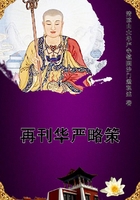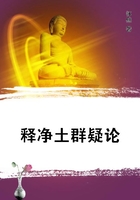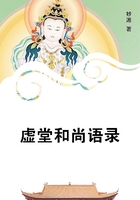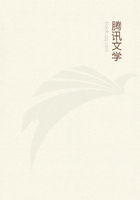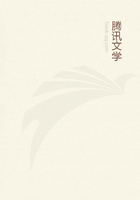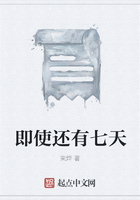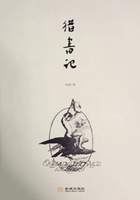In fact the sole principle of morality consists in the independence on all matter of the law (namely, a desired object), and in the determination of the elective will by the mere universal legislative form of which its maxim must be capable.Now this independence is freedom in the negative sense, and this self-legislation of the pure, and therefore practical, reason is freedom in the positive sense.Thus the moral law expresses nothing else than the autonomy of the pure practical reason; that is, freedom;and this is itself the formal condition of all maxims, and on this condition only can they agree with the supreme practical law.If therefore the matter of the volition, which can be nothing else than the object of a desire that is connected with the law, enters into the practical law, as the condition of its possibility, there results heteronomy of the elective will, namely, dependence on the physical law that we should follow some impulse or inclination.In that case the will does not give itself the law, but only the precept how rationally to follow pathological law; and the maxim which, in such a case, never contains the universally legislative form, not only produces no obligation, but is itself opposed to the principle of a pure practical reason and, therefore, also to the moral disposition, even though the resulting action may be conformable to the law.
REMARK.
Hence a practical precept, which contains a material (and therefore empirical) condition, must never be reckoned a practical law.For the law of the pure will, which is free, brings the will into a sphere quite different from the empirical; and as the necessity involved in the law is not a physical necessity, it can only consist in the formal conditions of the possibility of a law in general.All the matter of practical rules rests on subjective conditions, which give them only a conditional universality (in case I desire this or that, what I must do in order to obtain it), and they all turn on the principle of private happiness.Now, it is indeed undeniable that every volition must have an object, and therefore a matter; but it does not follow that this is the determining principle and the condition of the maxim; for, if it is so, then this cannot be exhibited in a universally legislative form, since in that case the expectation of the existence of the object would be the determining cause of the choice, and the volition must presuppose the dependence of the faculty of desire on the existence of something; but this dependence can only be sought in empirical conditions and, therefore, can never furnish a foundation for a necessary and universal rule.Thus, the happiness of others may be the object of the will of a rational being.But if it were the determining principle of the maxim, we must assume that we find not only a rational satisfaction in the welfare of others, but also a want such as the sympathetic disposition in some men occasions.But I cannot assume the existence of this want in every rational being (not at all in God).
The matter, then, of the maxim may remain, but it must not be the condition of it, else the maxim could not be fit for a law.Hence, the mere form of law, which limits the matter, must also be a reason for adding this matter to the will, not for presupposing it.For example, let the matter be my own happiness.This (rule), if Iattribute it to everyone (as, in fact, I may, in the case of every finite being), can become an objective practical law only if I include the happiness of others.Therefore, the law that we should promote the happiness of others does not arise from the assumption that this is an object of everyone's choice, but merely from this, that the form of universality which reason requires as the condition of giving to a maxim of self-love the objective validity of a law is the principle that determines the will.Therefore it was not the object (the happiness of others) that determined the pure will, but it was the form of law only, by which I restricted my maxim, founded on inclination, so as to give it the universality of a law, and thus to adapt it to the practical reason; and it is this restriction alone, and not the addition of an external spring, that can give rise to the notion of the obligation to extend the maxim of my self-love to the happiness of others.
REMARK II.
The direct opposite of the principle of morality is, when the principle of private happiness is made the determining principle of the will, and with this is to be reckoned, as I have shown above, everything that places the determining principle which is to serve as a law, anywhere but in the legislative form of the maxim.This contradiction, however, is not merely logical, like that which would arise between rules empirically conditioned, if they were raised to the rank of necessary principles of cognition, but is practical, and would ruin morality altogether were not the voice of reason in reference to the will so clear, so irrepressible, so distinctly audible, even to the commonest men.It can only, indeed, be maintained in the perplexing speculations of the schools, which are bold enough to shut their ears against that heavenly voice, in order to support a theory that costs no trouble.

